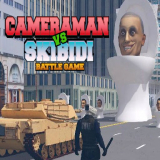Welcome to the exciting world of HTML5 game development, where creativity meets technology to bring immersive gaming experiences to life. In this article, we delve into the best resources that can help you tap into the potential of creating captivating browser-based games. From game design inspiration to utilizing game engines and engaging with the vibrant game development community, there's a wealth of knowledge waiting for you. Dive in to explore the endless possibilities and enhance your game development skills. Stay tuned to uncover the secrets behind the magic!
Understanding the Importance of HTML5 in Game Development
HTML5 has transformed the landscape of game development, offering a versatile and powerful platform for creating engaging online gaming experiences. With the rise of browser-based games and the demand for interactive web content, understanding the importance of HTML5 in game development is crucial for aspiring game developers and seasoned professionals alike.
Evolving Game Development Landscape: The shift towards online gaming has opened up new possibilities for game designers and developers. HTML5's capabilities have made it the go-to choice for creating compelling browser-based games that reach a wide audience across different devices.
Cross-Platform Compatibility: One of HTML5's key advantages is its cross-platform compatibility, allowing games to run seamlessly on desktops, tablets, and smartphones without the need for additional plugins. This flexibility is essential in reaching a broader player base and ensuring a consistent gaming experience across devices.
Rich Multimedia Support: HTML5's multimedia capabilities, including audio and video support, canvas for graphics rendering, and WebGL for 3D graphics, provide game developers with the tools to create visually stunning and immersive gaming experiences. The ability to integrate multimedia elements seamlessly enhances the overall gameplay and engagement.
Mobile-Friendly Development: With the growing popularity of mobile gaming, HTML5's mobile-friendly features have made it a preferred choice for developing mobile games. Its responsive design and touch support enable developers to create games optimized for various screen sizes and touch interactions, catering to the mobile gaming audience.
Open Web Standards: HTML5 is built on open web standards, making it accessible to developers worldwide. Its compatibility with modern web browsers ensures that games developed in HTML5 can reach a broad audience without the limitations of proprietary technologies.
Scalability and Performance: HTML5's performance enhancements, such as improved rendering capabilities and optimized code execution, contribute to creating games that are not only visually appealing but also efficient and scalable. This scalability is crucial for handling complex game mechanics and ensuring smooth gameplay experiences.
By recognizing the significance of HTML5 in game development and leveraging its features effectively, developers can unlock a world of possibilities in creating innovative and engaging browser-based games. From interactive storytelling to multiplayer experiences, HTML5 serves as a robust foundation for pushing the boundaries of digital entertainment and captivating players worldwide.

Exploring Game Development Tools and Platforms
When it comes to diving into the world of game development, having the right tools and platforms at your disposal is crucial. In this section, we will explore the landscape of game development tools and platforms that can pave the way for creating stunning HTML5 games that captivate audiences and provide engaging experiences.
Game Development Tools: Game development tools serve as the backbone of every game creation process, offering functionalities that streamline development tasks. From designing characters to coding game mechanics, these tools enhance productivity and allow developers to bring their creative visions to life. Some popular game development tools include Unity, Unreal Engine, Construct, and GameMaker Studio.
Integrated Development Environments: Integrated Development Environments (IDEs) are essential for coding and programming games. Tools like Visual Studio Code, Sublime Text, and Atom provide developers with features like syntax highlighting, debugging capabilities, and code completion to write efficient and error-free code. IDEs are essential for harnessing the power of programming languages in game development.
Game Creation Platforms: Game creation platforms have simplified the process of building games, making it accessible to a broader audience. Platforms like Scratch, Stencyl, and Twine allow both beginners and experienced developers to create interactive web content and browser-based games without extensive coding knowledge. These platforms are valuable resources for aspiring game creators looking to jumpstart their game development journey.
Web Development Tools: In the realm of HTML5 game development, web development tools play a significant role in creating visually stunning and interactive games. Tools like Phaser, PixiJS, and ImpactJS offer libraries and frameworks specifically designed for developing browser-based games. These tools provide developers with the necessary resources to optimize game performance and deliver immersive gaming experiences.
Game Programming Resources: Mastering game programming languages is essential for developing engaging HTML5 games. Languages like JavaScript, TypeScript, and Python are commonly used in web-based game development due to their versatility and compatibility with modern web browsers. Leveraging game programming tutorials and resources can help developers enhance their coding skills and create dynamic gameplay experiences.
By exploring a diverse range of game development tools and platforms, developers can unlock endless possibilities for creating captivating HTML5 games that push the boundaries of interactive web content. Whether you are looking to design visually stunning graphics, implement complex game mechanics, or collaborate with a thriving game development community, the right tools and platforms can empower you to unleash your creativity in the world of game development.
Utilizing HTML5 Game Engines for Interactive Gaming Experiences
HTML5 game engines play a pivotal role in the creation of interactive and engaging gaming experiences. These powerful tools provide developers with the necessary framework to bring their game ideas to life, offering a wide range of features and capabilities. Let's delve into how utilizing HTML5 game engines can enhance the overall gaming experience:
Efficiency and Flexibility: HTML5 game engines streamline the game development process by providing a structured environment where developers can code, design, and test their games. With built-in functions and libraries, developers can efficiently create complex game mechanics and animations. Additionally, these engines offer flexibility, allowing developers to customize their games according to their unique vision and requirements.
Cross-Platform Compatibility: One of the key advantages of HTML5 game engines is their cross-platform compatibility. Games developed using these engines can run on various devices and platforms, including web browsers, mobile devices, and desktops. This versatility ensures a broader reach for the game, enabling players to access it seamlessly across different devices without compromising on quality.
Rich Multimedia Support: HTML5 game engines provide robust support for multimedia elements, such as audio, video, and graphics. Developers can seamlessly integrate high-quality visuals, sound effects, and music into their games, enhancing the overall gaming experience. This support for multimedia elements allows developers to create immersive and captivating games that resonate with players.
Performance Optimization: Game engines built on HTML5 are designed to optimize performance and ensure smooth gameplay. These engines employ techniques such as asset compression, resource management, and rendering optimization to deliver a seamless gaming experience. By leveraging these performance-enhancing features, developers can create games that load quickly, run smoothly, and provide an enjoyable experience for players.
Community Support and Documentation: Most HTML5 game engines have a vibrant community of developers and enthusiasts who actively contribute to its growth. This community support enables developers to seek help, share knowledge, and collaborate on projects. Additionally, comprehensive documentation and tutorials are usually available for these engines, providing developers with the resources they need to learn and master the engine's capabilities.
Integration with Third-Party Tools: Many HTML5 game engines support integration with third-party tools and services, further expanding their functionality. Developers can leverage plugins, extensions, and APIs to enhance their games with features such as analytics, social sharing, and monetization. This seamless integration with external tools empowers developers to create comprehensive and feature-rich gaming experiences.
In conclusion, HTML5 game engines are instrumental in creating interactive and immersive gaming experiences. Their efficiency, cross-platform compatibility, multimedia support, performance optimization, community support, and integration capabilities make them invaluable tools for game developers looking to bring their ideas to life. By utilizing HTML5 game engines, developers can unleash their creativity and deliver engaging games that captivate players across different platforms.
Discovering Game Design Inspiration and Resources
Game design is a creative process that brings worlds, characters, and stories to life in the form of interactive experiences. Whether you're a seasoned game developer or just starting out, finding inspiration and resources to fuel your creativity is essential. In the realm of HTML5 game development, there is a wealth of resources available to spark your imagination and enhance your game design skills.
When seeking game design inspiration, one of the best places to start is by exploring the vibrant online gaming community. Platforms like Reddit's r/gamedev and Gamasutra offer valuable insights into the latest trends, industry news, and design discussions. Engaging with fellow game developers, sharing ideas, and seeking feedback can provide fresh perspectives and motivation for your projects.
For those looking to delve deeper into game design theory and principles, there are a plethora of game development blogs, podcasts, and online courses to tap into. Websites like GDC Vault and Coursera offer a treasure trove of resources covering topics such as level design, mechanics, storytelling, and player engagement. Learning from industry experts and studying successful game design examples can help you refine your skills and craft memorable gaming experiences.
In addition to online resources, attending game development conferences and events can be an invaluable source of inspiration. Events like the Game Developers Conference (GDC) and IndieCade bring together developers, artists, and enthusiasts to showcase innovative projects, share knowledge, and network with like-minded individuals. Immersing yourself in the vibrant atmosphere of these events can ignite your creative spark and provide new perspectives on game design.
When it comes to game design resources, there are a variety of tools and assets available to help streamline your workflow and enhance the visual appeal of your games. Websites like OpenGameArt and Kenney.nl offer a vast selection of free game assets, including sprites, backgrounds, sound effects, and music tracks. Leveraging these resources can save you time and effort in creating assets from scratch, allowing you to focus on refining your game design and gameplay mechanics.
For aspiring game designers seeking design inspiration and resources, the world of HTML5 game development is ripe with opportunities to ignite creativity, refine skills, and connect with a vibrant community of fellow developers. By exploring online communities, learning from industry experts, and utilizing game design tools and assets, you can elevate your game projects and create immersive gaming experiences that captivate players around the world.

Mastering Game Programming Languages for Web-Based Games
Developing web-based games requires a solid foundation in game programming languages. Mastery of these coding languages is essential for creating interactive and engaging gaming experiences. Here are some key game programming languages that every aspiring game developer should consider mastering:
JavaScript: JavaScript is a fundamental language for web development and is widely used in game development due to its versatility and compatibility with HTML5. It allows developers to create dynamic and interactive content, making it perfect for browser-based games.
HTML5: While not a programming language per se, HTML5 is crucial for structuring web-based games. It provides the framework for elements such as graphics, audio, and video integration. Understanding HTML5 is essential for creating responsive and visually appealing games.
CSS: Cascading Style Sheets (CSS) are essential for designing the layout and appearance of web-based games. It controls the presentation of HTML elements, enabling developers to customize the visual aspects of their games.
TypeScript: TypeScript is a superset of JavaScript that adds static typing to the language, making it easier to scale and maintain larger codebases. Many game developers prefer TypeScript for its enhanced productivity and error detection capabilities.
Python: While not as commonly used as JavaScript for web-based games, Python is known for its simplicity and readability. It's a versatile language that can be used for game logic, AI implementation, and server-side scripting.
C#: C# is widely used in game development, particularly for creating games using the Unity game engine. It's a powerful language that offers a lot of flexibility and performance optimization for developing more complex web-based games.
Mastering these game programming languages will not only enhance your coding skills but also broaden your opportunities in the competitive world of game development. Whether you're creating simple browser-based games or complex interactive experiences, a strong foundation in these languages will set you on the path to success. Experimenting with different languages and finding the right fit for your game development projects is key to unleashing your creativity in the world of web-based games.
Leveraging Free Game Assets and Graphics Resources
When it comes to creating captivating HTML5 games, leveraging free game assets and graphics resources can be a game-changer. These resources not only enhance the visual appeal of your game but also provide a solid foundation to build upon. Whether you're a seasoned game developer or just starting out, incorporating high-quality assets into your project can significantly elevate the player experience.
Free game assets cover a wide range of elements, including sprites, backgrounds, animations, sound effects, music, and more. By utilizing these resources, developers can focus on the gameplay and mechanics, without the added pressure of creating everything from scratch. This approach not only saves time but also opens up a world of creative possibilities.
Graphics play a crucial role in attracting and engaging players. Eye-catching visuals can draw players into the game world and enhance their overall experience. From character designs to level backgrounds, every visual element contributes to the game's atmosphere and immerses players in the gameplay.
Finding free game assets is easier than ever, thanks to the vibrant game development community. Various websites offer a plethora of resources curated by talented artists and designers. These platforms provide a diverse range of assets suitable for different game genres and styles. Whether you're looking for pixel art assets for a retro-inspired game or high-definition graphics for a modern twist, there is something for everyone.
In addition to visuals, sound effects and music are essential components of any game. They set the mood, create tension, and enhance the overall gaming experience. Free resources for audio elements can be found on dedicated platforms, offering a vast library of sounds and music tracks to complement your game.
When incorporating free game assets into your project, it's essential to respect licensing terms and give proper attribution to the creators. Many assets are released under specific licenses, such as Creative Commons, which require proper crediting. By adhering to these guidelines, you not only support the creators but also contribute to the collaborative spirit of the game development community.
By leveraging free game assets and graphics resources, developers can enhance their games without breaking the bank. These resources provide a valuable foundation for creativity and innovation, allowing developers to focus on what they do best – creating engaging and immersive gaming experiences for players around the world.
Engaging with the Game Development Community and Forums
The game development community and forums play a crucial role in the growth and success of aspiring game developers. Engaging with like-minded individuals, sharing knowledge, and seeking advice can significantly enhance your skills and expand your network within the industry. Here are some valuable ways to connect with the game development community and make the most out of online forums:
Join Game Development Forums: Participating in dedicated game development forums allows you to interact with professionals, enthusiasts, and beginners in the field. Platforms like Reddit's r/gamedev, TIGSource Forums, and Unity Forums offer a wealth of information, resources, and support for individuals at all skill levels.
Attend Game Development Events: Virtual or in-person game development events, such as conferences, workshops, and game jams, provide excellent opportunities to network with fellow developers and gain insights from industry leaders. Events like Global Game Jam and Game Developers Conference (GDC) offer a hands-on learning experience and a chance to showcase your work.
Collaborate on Projects: Building connections within the game development community can lead to exciting collaboration opportunities. Working on projects with others not only helps you learn new skills but also provides a platform to share ideas and create innovative games together.
Contribute to Open Source Projects: Contributing to open-source game development projects is a great way to give back to the community while honing your skills. Platforms like GitHub host numerous open-source game projects where you can contribute code, report bugs, and engage with other developers.
Follow Influential Game Developers: Stay updated on the latest trends and practices in game development by following influential developers on social media platforms like Twitter, LinkedIn, and Discord. Engaging with their content, participating in discussions, and seeking mentorship can offer valuable insights and inspiration.
Seek Feedback and Advice: Sharing your work-in-progress projects on forums for feedback can help you identify areas for improvement and gain valuable insights from experienced developers. Constructive criticism from the community can push your skills to the next level and refine your game development techniques.
Participate in Game Jams: Game jams are time-limited events where developers come together to create games based on a specific theme. Participating in game jams not only hones your rapid development skills but also fosters creativity and collaboration within the game development community.
By actively engaging with the game development community and forums, you can stay motivated, learn new techniques, and establish meaningful connections that can propel your game development journey to new heights. Remember, the gaming community is a supportive and collaborative space where creativity thrives, and opportunities abound for those eager to learn and grow.

















